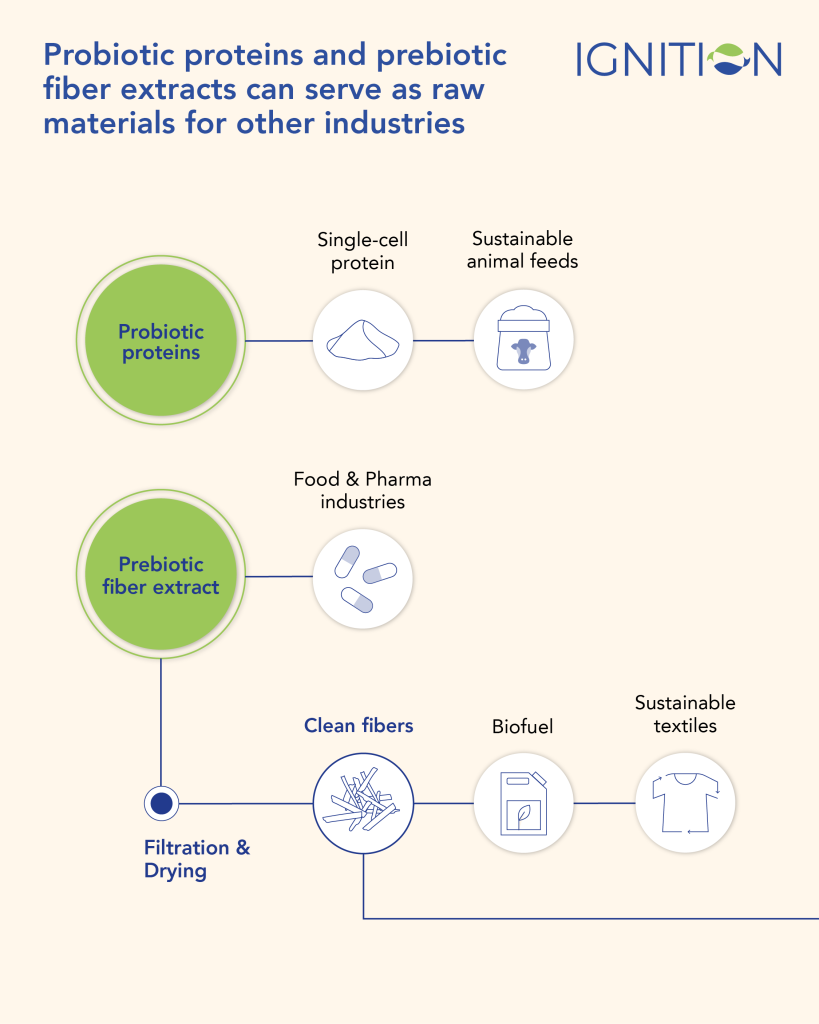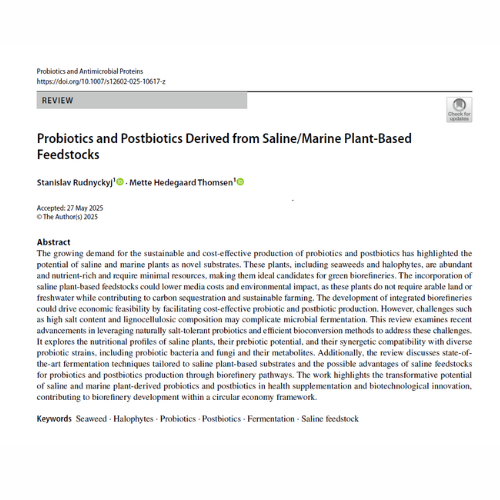A new review supported by the IGNITION project highlights the untapped potential of saline and marine plants as innovative feedstocks for producing probiotics and postbiotics. Published in Probiotics and Antimicrobial Proteins, the article was co-authored by Stanislav Rudnyckyj and Mette Hedegaard Thomsen (Aalborg University), and outlines the opportunities and challenges in using seaweeds and halophytes as raw materials in circular biorefineries.
The study points to the unique properties of these plants—including their nutrient-rich composition and natural abundance in saline environments—as key advantages for sustainable production. Their use could drastically reduce freshwater and land use while simultaneously boosting carbon sequestration.
Crucially, the review compiles evidence that many probiotic bacteria and yeasts are well-suited to grow in saline conditions. It also explores how microbial fermentation of marine biomass can yield functional products with health benefits, such as short-chain fatty acids, antioxidants, and antimicrobial compounds. These findings are especially relevant for the nutraceutical sector, where demand for cost-effective, eco-friendly ingredients is growing.
The paper also provides an industrial perspective, analysing the economic viability of biorefineries built on saline feedstocks. It calls attention to the need for further research into strain improvement, fermentation optimization, and consumer acceptance of marine-derived products for a more sustainable food and feed production.


